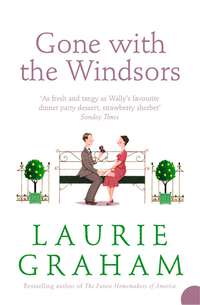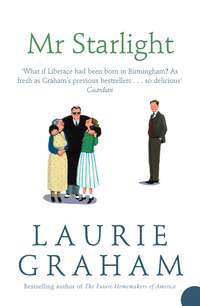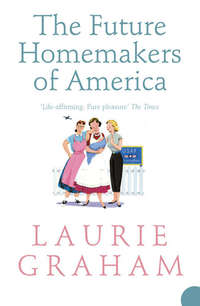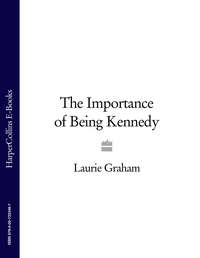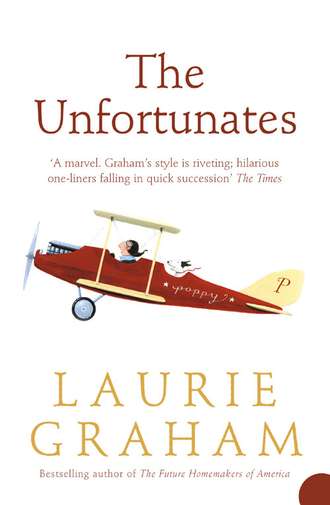
Полная версия
The Unfortunates
It was half past eight by the time they began to warp her in, and then the thunderstorm broke. We waited another hour, in the rain, until she was moored and the gangplank was lowered, and lists of survivors were finally posted. That was when I got separated from Harry.
There was such a crush I could scarcely breathe and I was wet to the skin.
‘Please,’ I asked the man in front of me, ‘can you see if Minkel is there?’
But he gave me an elbow in the ribs and I never saw him again. A woman said she’d find out for me if I gave her a dollar, but I didn’t have a dollar. And so I just found a place to lean, against the customs shed, figuring the best thing was to stand still and allow Pa to spot me easily.
Then a Cunard porter noticed me.
‘Are you all right, Miss?’ he said. ‘Is it First Class you’re looking for?’
I said, ‘Mr Abraham Minkel. I can’t pay you though. I don’t come into my money until I’m twenty-one. But my father will tip you.’
He touched his cap and disappeared, and I didn’t expect to see him again. A sense of service was a thing of the past, as Ma and Aunt Fish often remarked, and everyone expected something in their grubby hand before they’d stir themselves.
And so I waited, shivering, wondering at the uselessness of Harry Glaser, trying to draw up a balance sheet of my standing at home. I believed my crimes of disobedience, ingratitude and impropriety might just be offset by the triumph of being the one to bring home Pa.
The ladies from First Class began to file into the echoing shed. There were children, too. Some were crying, most were silent, and the ladies still had on their hats. ‘How odd,’ I thought. ‘A sinking must be a good deal gentler than I imagined.’ And then this happened. I saw a face I knew.
The very moment I looked at her, she sensed it and looked back at me, quite directly. Then she turned her head away and disappeared into the crowd. I was still puzzling how an Irish, dismissed without references, could have sailed first-class and in such Parisian style, when the Cunard boy reappeared beside me.
‘Miss,’ he said, ‘I’m afraid to say I couldn’t find a Mr Abraham Minkel listed, but Mrs Minkel is there, alive and well. You should be seeing her any moment now.’
But the women had all disembarked. The men filed through next, but my Pa was not amongst them. They all had downcast eyes, and a hurried step, and somewhere in the crowd I heard somebody hiss. Being a survivor isn’t necessarily a happy condition, I realized later. There would always be the question, hanging in the air, too awful to ask, ‘And how were you so fortunate? What other poor soul paid for your life with his? Or hers?’ If you were an able-bodied man, it would have been better form to perish nobly.
‘Not spotted her yet, Miss?’ the porter asked. ‘Well, that’s a mystery.’
He was now taking more interest in my case than I liked. He was like a stray dog, eagerly padding along at my side, on the strength of one brief expression of gratitude.
I said, ‘It’s not a mystery. It was a cruel mistake. There was no Mrs Minkel. Only my Pa, but he’s not here. Is there another boat? Are there more following on?’
He looked away.
‘I don’t think so, Miss,’ he whispered. ‘I don’t think so at all.’
People milled around us, plucking at him, wanting his attention.
‘My Pa’s lost,’ I said. I knew it.
And he was glad enough then to make his getaway.
A woman said, ‘There’s to be a service of thanksgiving. Right away.’
What did I care? Thanksgiving for what?
‘Not just thanksgiving,’ she said, reading my expression. ‘To pray for the ones that were lost as well. A prayer is never wasted.’
The third-class passengers had been directed to another shed, and a group of them were leaving, and some first-class ladies, too, walking to the nearest church.
Over the heads of a hundred people I thought I saw the feather trim of the Irish’s hat, and I decided at that moment to add another item to the list of my transgressions. I abandoned all thoughts of Harry Glaser and followed the throng, walking as quickly as I could so as to catch up, trying to remember whether I had ever known her name.
We had had any number of Marys, several Annes and a Videlma Teresa who broke, against stiff competition, all previous records for brevity of employment with us, but on the whole, their names disappeared. They were, to a girl, impertinent, uncouth and given to ‘carrying on’ so that Ma often predicted her death would be certified as ‘caused by Irish’.
I had never been in a church before. Ma and Aunt Fish had formulated a plan for their concerted rise in New York society, and a key decision had been to keep a low profile vis-à-vis God.
‘Religion gives rise to intemperate opinions, Dora,’ Aunt Fish advised, ‘and a hostess does well to keep those from her table.’
So we avoided any association with God as carefully as we avoided cold drafts, and, with regard to this, nothing could have made Ma happier than Honey’s choice of Harry Glaser as a husband.
‘A good thing about Harry,’ I had often heard her say, ‘is that he doesn’t go in for religion.’
I knew therefore, as we came to the doors of St Peter’s Episcopalian church, to expect dangerous excesses inside, and I resolved to stay in command of myself. I kept my eyes downcast for five minutes at least, for fear of coming face to face with this God who was too controversial to have to dinner.
All around me grown men wept and crumbled, and candles were lit, and a song was sung, in poor cracked voices, for those in peril on the sea.
‘Too late now for that,’ I thought, aching for the smell of my Pa’s hair tonic. But I liked being there, close to people who had been saved from the dark and deep. I liked how determined they had been to walk to 20th Street and pray when they might have gone home directly and been cosseted with warm milk and cake.
She was kneeling, across the other side of the church, busy with some Irish hocus-pocus. I kept her in my sights and moved a couple of times, to get nearer to her, squeezing past people who complained and people who were too lost in their sorrow to notice. I had remembered her name.
When the singing and praying was over I moved quickly, to be sure of blocking her path as she made to leave.
‘Nellie,’ I said, ‘is it you?’
She gave me a stubborn look I recognized, but her face colored. She may have been dressed by Mr Worth, but she still had the look of a maid caught trying on her mistress’s gown.
I said, ‘My Pa was on the Titanic. Did you see him, by any chance?’
Still she resisted me, and I felt my chance slipping away, to know the worst, or to find new hope.
‘Please, Nellie,’ I begged. ‘Can you tell me anything at all?’
Her pertness dissolved.
‘I’m so sorry, Miss Poppy,’ she said. ‘I’m so sorry for your loss. He went back for my muff. I begged him not to, but he would go …’
We stood face to face but at cross purposes, and people flowed around us, away, out of the church and back into life.
‘… it was my Persian broadtail muff,’ she said, ‘and it was an awful cold night.’
I said, ‘So you did see him? Were you close to him? Did he say anything?’
‘He said “Go to the boat station, Nellie. I’ll come to you there.”’
Then her tears started.
‘He lived and died a gentleman,’ she said. ‘Whatever people may say, there were no irregularities between us. I was there by way of secretary to him.’
I said, ‘How could you be? Mr Levi was his secretary. And anyway, can you read?’
‘I can,’ she said. ‘Well. I was more of an assistant. A personal assistant. There was no one could take away his headaches the way I could. And that’s how things stood. I’d swear to it on the good book.’
They always said that when they were lying. Next thing she’d be asking for wages still owed.
I said, ‘Where do you live? Where are you going?’
‘To my sister,’ she said. ‘Or maybe to my cousin.’
The slipperiness of the Irish. How right my mother was.
It was a long walk home. Three miles, I now know, but then I had no idea of distance or time. My shoes rubbed holes in my stockings and my toes were pinched and sore, but I pressed on as fast as I could. I knew the streets were full of robbers and murderers and women who drank sherry wine.
It wasn’t exactly fear kept me hurrying along. Now my Pa had died, dead seemed an easy thing to be. Still, I wasn’t sure I’d be as brave as he had been. ‘Go to the boat station, Nellie.’ When the moment came, I might squawk, or not quite die, and lie in agony in the gutter.
I knew, too, I’d be the subject of a full inquiry at home, and I preferred to face it as soon as possible. There was no predicting what grief would make of Ma. She might forgive all, in a fit of tenderness, or she might turn on me, like a wounded beast. In any event, it has always been my nature to take whatever I have coming to me as quickly as possible.
As I passed the New Theater, nearly home, I heard an automobile chugging toward me and I knew it was a search party in the shape of Harry Glaser. He all but threw me into the car. I didn’t think he had it in him.
‘You damned fool,’ was all he could say. ‘You goddamned fool!’
I said, ‘You were the one abandoned me. I waited for you. And does Honey know you use language?’
‘Don’t we have hard enough times ahead of us with your Ma,’ he said, ‘without you disappearing and putting me in a bad odor? What’s your game?’
I said, ‘I lost you in the crowd, that’s all. Why are you so afraid of Ma? What did she say? What’s my punishment?’
‘Consider yourself mighty lucky,’ he said. ‘So far you haven’t been missed, but you’re not home and dry yet. You’ve still got to get back into the house and into your bed, and I suppose you’ll be expecting my help? You’re a brat, no two ways.’
‘Harry,’ I said, ‘a porter told me there was a Minkel on the list of survivors. Did you see that?’
‘No,’ he said. ‘I definitely did not, and neither did you if you know what’s good for you. Anyway, it was clearly a clerical error.’
A lamp was burning in the parlor, but it was only Uncle Israel Fish, smoking a last cigarette. He appeared in the doorway as I tiptoed up the stairs but seemed not to notice me. We only see what we expect to see, I suppose. It was another lesson for me, and I had learned so many in just one day. I listed them as I lay in bed, too tired for sleep.
1. My Pa was not indestructible.
2. Personal assistants got Persian lamb muffs and trips to Europe.
3. I was blessed with powers of invisibility.
4. Harry Glaser was a half-wit, my sister married him, therefore I would be expected to marry a half-wit, therefore I would not marry.
I got up, lit a candle, and one by one I committed to its flame my ear-correcting bandeaux. First the pink one, then the apricot, then the eau-de-Nil. They created an interesting and rather satisfying smell.
FOUR
It was Aunt Fish who came into my room next morning. She was wearing her black bombazine.
‘Poppy,’ she said, gravely, ‘a terrible sadness has come to this house, so you must now make great efforts to be a good girl, for your dear mother’s sake.’
I said, ‘I’m sure I always do try to be good.’
‘There is all the difference in the world between trying and succeeding,’ she said, ‘and quibbling with me is not a promising way to begin.’
I said, ‘I know Pa is drowned, Aunt Fish. I know Ma is a poor widow now.’
She leapt up and knotted the ends of her shawl in despair.
‘That is precisely the kind of heartless remark good girls do not make,’ she said. ‘Your duty is to spare your mother from harsh reminders.’
I got up and put on my wrapper. Aunt Fish was looking at my ruined stockings and muddied shoes.
I said, ‘Am I to pretend then that Pa isn’t drowned? Am I to pretend he may come back some day?’
‘You are to wash your face and show respect,’ she said. ‘You are to go to your mother, and try to persuade her to sip a little peptonized milk, to keep up her strength. And you are never ever to speak of drownings, or steam ships or … oceans. How worn out your shoes are, Poppy. I’d suggest a new pair, but you’ll be going out so seldom now it hardly seems worth the expense.’
And with those words, Aunt Fish raised the curtain on a whole new period of my life.
Ma was propped up with extra pillows. Her night table was cluttered with various bottled remedies, her little helpers. I could see she had been crying. I suppose she could see I had, too. She patted the bed beside her.
‘What a blessing I have you, Poppy,’ she said. ‘I see now, this was all meant to be. If you had been as favored with beauty as Honey you’d soon make a good match and then what would I do, left all alone in the world?’
I opened my mouth to say I didn’t think Honey was all that favored with beauty, but Ma was getting into her stride.
‘But it’s so clear to me now,’ she continued. ‘I was given a beauty for the consolation her children will bring me, and I was given a plain one for companionship in my old age. How wise Nature is!’
I said, ‘Does this mean I don’t have to go to Cincinnati for a new nose?’
‘The nose is cancelled,’ she said. ‘And the singing lessons and the French and the cotillions. There’s no sense in exerting ourselves in that direction anymore.’
The husband hunt had been called off. Still, I had rather enjoyed my singing lessons.
I said, ‘Shouldn’t you like me to be able to sing for you sometimes, Ma?’
‘Not at all,’ she said. ‘I should like you to read to me sometimes from the Home Journal. And mend stockings.’
She tried to stroke my hair, but her fingers caught in it. Standing in the rain had given it a particularly vicious kink.
‘We’ll just live quietly now,’ she said. ‘No more dinners.’
Dinners had always been a trial to her, as she clambered the foothills of society. She had once committed the solecism of following a potage crème with creams of veal en dariole. It was only the dessert, a Prune Shape, produced by Reilly, our cook, in a moment of whimsy, as a substitute for the Almond Shape that had been ordered, which saved Ma from the social ruin of presiding over a completely beige meal.
As far as I know she never descended to the kitchen. Her negotiations with Reilly were conducted entirely through a speaking tube that connected the parlor to the scullery. The temperature of their exchanges rose as the dinner hour drew near, and neither party ever seemed to understand that they could not only hear and be heard. They could also be overheard.
‘Reilly has been nipping at the brandy,’ was one of Ma’s favorite asides.
Reilly herself was fond of the prefix ‘fecken’’, as in, ‘I’ll give her fecken’ fricandeau of sweetbreads, all right.’
I took this to be a quaint usage from Reilly’s home country and sometimes repeated it, in imitation of her. I had no idea what it meant, and neither did Ma, so no harm was done.
On the day of a dinner, Ma required an extra dose of Tilden’s, for her nerves. The day after a dinner, her shades were kept tightly closed and she took nothing stronger than seltzer water. That Pa’s death meant an end to all this was no cause of regret to me.
I said, ‘What about the backboard? Do I still have to wear that?’
‘Good posture is always an asset,’ she said, ‘even in a homely girl.’
I sensed, though, that this was the moment to strike as many bargains as possible, and I was just about to sue for a ceasefire in the war against my protruding ears, when Aunt Fish appeared in the doorway. In her hand were the ashes of my corrective nightwear bandeaux.
‘Dora!’ she said. ‘I have had the candle removed from Poppy’s vanity table. I fear she is not yet to be trusted with unguarded flames.’
FIVE
Like Great Uncle Meyer, Aunt and Uncle Fish had not been blessed with children of their own, and perhaps they had expected Ma and Pa to follow Grandpa Minkel’s example and hand over their spare. At any rate, Aunt Fish seemed to believe she had some lien over me and the bigger I grew, the more forthcoming she was with her advice and opinions.
On the subject of molding and polishing Honey, she had deferred to my mother. Clearly she, the elder sister, understood better than Aunt Fish, a younger and childless person, how to raise a daughter, especially a daughter as perfectly pink and golden as Honey. But my aunt sensed the moment would come when her talents for, as she put it, ‘the handling of more difficult cases’ would be gratefully received. If Aunt Fish ever had a career, it was me.
After Pa’s death she deemed her normal daily visits to be inadequate and she moved into our house for an indefinite period, to spare Ma the burden of household decisions and make good my deficiencies as a tower of strength. Ma suggested that this might be a great inconvenience to Uncle Israel, but he insisted that nothing could be more convenient to him. He would dine at his club, he said, and be occupied until late every night going through Pa’s complicated business affairs with Mr Levi, ensuring everything was in order.
Complicated was a word that filled Ma with terror.
‘Are they not all in order, Israel?’ she asked him, handkerchief at the ready.
‘Nothing to worry about, Dora,’ he said. ‘I’m just going through things to make sure. Abe would have done the same for me.’
I said, ‘Are we ruined, Uncle Israel? Am I still a mustard heiress?’
‘Poppy!’ Aunt Fish said. ‘That is a thing to have said about one. One should not say it of oneself!’
‘Never fear, Pops,’ Uncle said, ‘you’ll come into a handsome amount.’
Ma said, ‘Not that you’ll have any need of it, since you will always have a home here and be provided for. You might think, Poppy, when you are of age, of making donations and helping with good works.’
‘There’ll certainly be plenty for that,’ Uncle said. ‘The Education Alliance is doing fine work with the immigrants. And The Daughters of Jacob. Both very worthy causes.’
Aunt Fish said, ‘Dora didn’t mean that kind of cause, Israel. One has to be careful in selecting one’s charities. They reflect on one so. Poppy might do better sending money to the little black babies in Africa.’
I’m sure it’s very easy to spend someone else’s inheritance. I didn’t bother to tell them I intended spending mine on silk harem pants and a gasoline-powered automobile and cake.
So Uncle dined at the Harmonie Club every night and Aunt Fish moved in with us and began nursing my mother through a carefully planned convalescence. At first, no callers were received. Ma stayed in her room and toyed with a little calf’s-foot jelly. I was allowed to brush her hair for fifteen minutes each day, and sometimes Honey came and read to her from Fashion Notes.
The name Minkel had only appeared in the first list of survivors published in The New York Times. By the time the next edition went to press, the phantom Mrs Minkel had disappeared and Ma seemed to be none the wiser. Harry Glaser had done something useful for once in his life.
By the middle of May, Ma had progressed to a small, baked fillet of sole with bread and butter fingers, followed by vermicelli pudding or perhaps an orange custard, by way of variety, and she felt able to receive Mrs Lesser and Mrs Schwab, and eventually the Misses Stone.
Mrs Schwab was herself a widow and understood what was appropriate, but Mrs Lesser was unpredictable. Sometimes she simply reported on the refreshments and gossip at her latest crush – she was very keen to be known for her afternoon teas – but sometimes she would canter off into more dangerous territory. Would there ever be a funeral for Pa, she would suddenly wonder out loud. If not, could there be a funeral monument? And if there could, what form should it take?
One of my duties was to anticipate this kind of conversational turn and head off Mrs Lesser at the pass, but sometimes my attention wandered and before I knew it Aunt Fish would be fanning Ma and tutting at me and suggesting to Mrs Lesser that she had already given us more than enough of her valuable time.
The thing was, I had questions myself, most of them far more macabre than Mrs Lesser’s. I knew, for instance, that the bodies of drowned persons were often hooked out of the East River and the Hudson, but I suspected things worked differently in an ocean. Still, sometimes I imagined Pa’s poor body, slowly finding its way to Pier 32. And other times I imagined he had never boarded that accursed boat. That he was still in London, inspecting his subsidiaries, and Irish Nellie had been, as usual, telling whoppers.
None of these ideas could ever be aired, of course. They were merely evidence of the unhealthy state of my mind and I knew better than to draw that kind of attention to myself. Apart from my sleeplessness and loss of appetite, daily life had become easier with Pa gone. Since April eighteenth my hair had been left au naturel. This alone gave me such a fierce appearance, I doubt even Aunt Fish would have dared to suggest resuming the applications of neck-whitener. We had reached a kind of accommodation. No one troubled me with beauty regimes, and I troubled no one with my questions. Then the Misses Stone came to call.
‘It occurs to us,’ one of them began, ‘we might be of assistance, at this sad time, in the … disposal of … unhappy reminders.’
The Misses Stone were collecting unwanted clothes for their Immigrant Aid Fund. It had never crossed my mind that Pa’s things wouldn’t hang forever in their closets. I visited them every day and buried my face in the cloth of his coats, to smell his cologne. The possibility that the Misses Stone might bundle them away and give them to strangers hit me much harder than the news of the sinking. I sprang from my chair while Ma and Aunt Fish still sat, pudding-faced, absorbing the request.
‘We have only happy, treasured reminders of my dear father and there are no plans to dispose of any of them’ was what I intended to say. But it came out as ‘They’re mine, you hateful crows! Pa’s things are mine! And no one else shall ever take them.’
They were unnerved by the sight of me, I know. Even diminished by grief, there was enough of me to make two of the birdlike Misses Stone, and then there was my hair, which weeks of neglect had turned from a deformity into an instrument of terror. They fluttered toward the door under cover of Aunt Fish’s bosom.
‘Unhinged by our loss,’ I heard her whisper. ‘Perhaps, when a little more time has passed …’ and the Misses Stone made little gobbling noises of sympathy.
Ma was looking at me in amazement.
‘Don’t let them take his things,’ I yelled at her. ‘Don’t let anyone take them. I miss Pa. I have to have the smell of him.’
‘Oh Poppy,’ was all she said. ‘Oh Poppy …’
‘Well!’ Aunt Fish said, when she returned from seeing off the Misses Stone. ‘That was a fine display you made of yourself.’
Ma struggled to her feet. I realize now she was only forty-two and not at all the old lady she seemed. She put out her arms and held me stiffly to her jet stomacher.
‘Oh Poppy,’ she said, ‘how stricken you are. I think perhaps one of my powders …’
She turned to Aunt Fish, who was all for smacking me, I dare say.
‘Zillah,’ she said, ‘I think poor Poppy needs a powder. Or perhaps some of my special drops?’
‘Hmm,’ said Aunt Fish. ‘And time alone, in her room, to compose herself and consider what embarrassment she has caused.’
I said, ‘I’m sure it wasn’t me who came begging for a dead man’s clothes. I’m sure we are not the ones who should feel embarrassed.’
Ma released me from our awkward embrace.
‘They are crows, Aunt Fish,’ I cried, as I fled the room. ‘They are crows and you are a gull for allowing them.’


